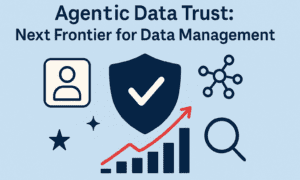Introduction
In today’s data-driven world, the management of data is a critical element for businesses and organizations. With the constant influx of data from various sources, ensuring its accuracy, security, and accessibility has become a top priority. Among the tools and techniques available for effective data management, data version control insights have emerged as a powerful solution. In this article, we will explore how data version control insights can help organizations navigate the complex landscape of data management.
Understanding Data Version Control
Data version control is a systematic approach to tracking changes and managing different versions of data. It offers a structured way to record and monitor modifications to data, making it easier to track changes, collaborate, and maintain a historical record of data transformations.
In the context of data management, data version control tools are indispensable for ensuring data accuracy, facilitating collaboration, and preserving data lineage. Whether you are dealing with datasets, data pipelines, or data analysis scripts, data version control insights play a pivotal role in maintaining data quality and consistency throughout its lifecycle.
The Advantages of Data Version Control in Data Management
Data version control is an essential tool for effective data management, enabling collaboration and a higher level of data quality and integrity. Its advantages include the following:
Data Quality Assurance
Data quality is a fundamental concern in data management. Data version control safeguards data quality by creating a transparent and traceable record of changes. This ensures that data remains trustworthy and reliable, even as it undergoes various transformations.
Collaboration and Team Productivity
Data management often involves multiple team members working on the same datasets or projects. Data version control enables seamless collaboration by allowing team members to work on different aspects of data without the fear of overwriting each other’s work. This results in improved productivity and a more organized workflow.
Historical Data Analysis
For organizations seeking insights from historical data, data version control is invaluable. It provides a comprehensive record of all changes, allowing data analysts to understand the evolution of data over time and make informed decisions based on historical patterns.
Error Detection and Recovery
Data errors can have significant consequences. Data version control helps in detecting errors as they occur and allows for a quick and precise rollback to a previous version of the data. This minimizes the impact of errors and reduces data-related risks.
Regulatory Compliance
For industries subject to regulatory requirements, data version control is a critical component of compliance. It provides the necessary documentation and traceability required to meet regulatory standards, such as GDPR or HIPAA.
Implementing Data Version Control
To harness the benefits of data version control in your data management strategy, consider the following steps:
Select the Right Data Version Control System
Choose a data version control system that suits your data management needs. Tools like Git, DVC (Data Version Control), MLflow, and lakeFS offer robust version control capabilities specifically designed for data. lakeFS, in particular, is notable for its ability to handle large-scale data projects and integrate seamlessly with existing data storage solutions, making it a valuable addition to any data management toolkit.
Define Data Management Workflows
Establish clear workflows for data management that incorporate version control. Define how data changes will be tracked, reviewed, and approved, and ensure that all team members are aligned with these processes.
Training and Documentation
Train your team in the principles and best practices of data version control. Create documentation that outlines the procedures and standards for managing data with version control systems, including lakeFS.
Continuous Improvement
Regularly review your data version control processes to identify areas for improvement. Adapt to the evolving data management landscape and technologies, leveraging the strengths of tools like lakeFS to enhance your data management capabilities.
Leveraging Data Version Control for Data Governance
Effective data governance is crucial for organizations to maintain data quality, compliance, and overall data integrity. Data version control plays a pivotal role in data governance by ensuring that data changes are transparent and well-documented. Organizations can implement policies and procedures that use version control insights to enforce data governance standards. This not only fosters trust in data but also helps in reducing risks associated with poor data management.
Enhancing Data Version Control with Machine Learning
As data management becomes more complex, machine learning and artificial intelligence are increasingly integrated into data version control systems. These technologies can automatically detect anomalies, predict potential data quality issues, and recommend data transformation strategies. Leveraging machine learning alongside data version control can significantly streamline data management processes and improve data quality.
Conclusion
Data version control insights are not limited to software development; they offer a transformative approach to data management. By incorporating data version control into your data management strategy, you can enhance data quality, facilitate collaboration, harness historical data insights, detect and recover from errors, ensure regulatory compliance, enforce data governance, and leverage machine learning for enhanced data management. In an era where data is a valuable asset, effective data management is essential, and data version control is the compass guiding organizations through the intricate journey of data navigation.



































